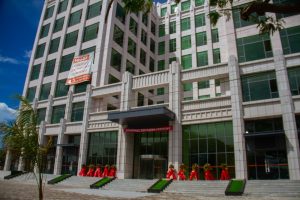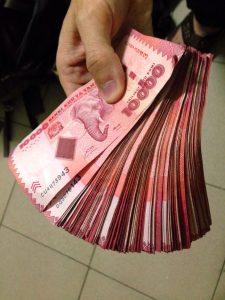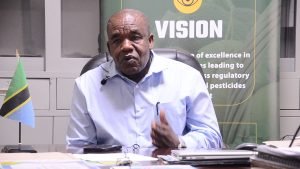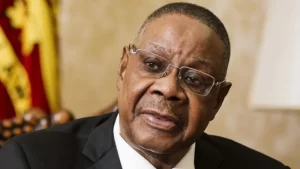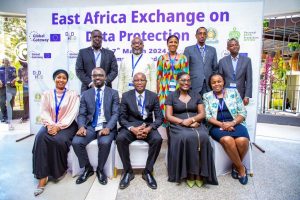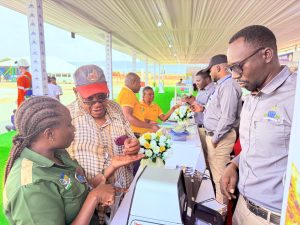WVC To Launch Africa’s Maiden Digital Genebank in Arusha City
By Valentine Oforo, Arusha
THE Tanzania’s vegetable sector is inching towards
impressive development following a plan by the World Vegetable Centre (WVC) to
launch the continental top genebank in Arusha City.
With official launch of the vital facility drafted for 3rd March, 2024 in
Arusha City, the continental maiden genebank is projected to play a meaningful
role in helping stimulate and heighten the general performance of the country’s
vegetable and spice sector.
Giving an exclusive interview to this media platform
Guardian, Dr. Gabriel Rugalema, the
Associate Director General (Africa) and Regional Director (ESA) at World
Vegetable Center (WVC) expressed that the state – of- the art genebank is equipped
with modern facilities.
“The genebank we’re constructing has multiple
key facilities, including special
sections for receiving and processing seeds, a place for drying seeds, as well
as a tailor-made seed laboratory, ” Dr Rugalema detailed.
Together with that, Dr Rugalema added that the
facility will also incorporate a special section for dealing specifically with
seeds health.
And he explained, installation of the vital seed
facility at the Tengeru- based centre in Arusha region was part of the
implementation of the Taiwan Africa Vegetable Initiative (TAVI) project.
“When I was tasked to lead this center, in
2020, there was no any major project
which caters for many countries in Africa, and thus since my role is to serve
for other countries I decided to write a proposal for a major project which
will at least be executed in some countries across Africa, ” the WVC’
high- ranked officer expressed.
He added, the project which managed to acquire a
lucrative sponsorship of 6.3USDmillion is being implemented in the four
countries of the Kingdom of Eswatini, Benin,
Madagascar and Tanzania.
“This project, which is due to phase out this
December, is focused on guaranteeing the safe and long term conservation of
vegetable seeds, for at least 99 years,” Dr Rugalema unveiled.
He said the project saw rolling out of a special
financial support for the construction of two modern genebank facilities in
Tanzania and Eswatini, all equipped with
needed driers, coolers, refrigeration and myriad other equipment.
As part of implementing the project, in Tanzania we have been working in sync with
the Tanzania Plant Health and Pesticides Authority (TPHPA) to collect and store
the large number of vegetable seeds that the county banks on.
“We’re very delighted as the European Union (EU)
and Crop- Trust have agreed to sponsor us to professionally launch the
general, the colourful event which will
attract different seed stakeholders from within and outside the country,
“he informed.
Dr Rugalema, who was recently promoted from the post
of Director for WVC for Eastern and Southern Africa to the title of the
Associate Director General (Africa) and Regional Director (ESA) expressed
gratitude for the possible manner to which the government has always been keen
to support the centre, the development
which has been allowing the centre to run its smooth set vision professionally.
” I am remaining optimistic that the government
will in a near future be part of our genebank as the facility will play a pivotal
role to put the status of the country’s vegetable seeds into the global ‘s
platform, ” he observed.
Located in Tengeru, a market-town in the Arusha region
of northern Tanzania, the World Vegetable Center (WVC)’s genebank maintains the
world’s largest public vegetable germplasm collection with 65,152 accessions
encompassing germplasm of 133 genera and 330 species from 155 countries,
including about 12,000 accessions of indigenous vegetables.
The Center’s African regional program began in 1992
in Arusha, northern Tanzania. Today the World Vegetable Center has professional
research and development staff working across Africa on important vegetable
crops such as tomato, pepper, onion and cabbage, as well as a range of African
traditional vegetables, and partners with more than 40 national institutions
and many international organizations.






